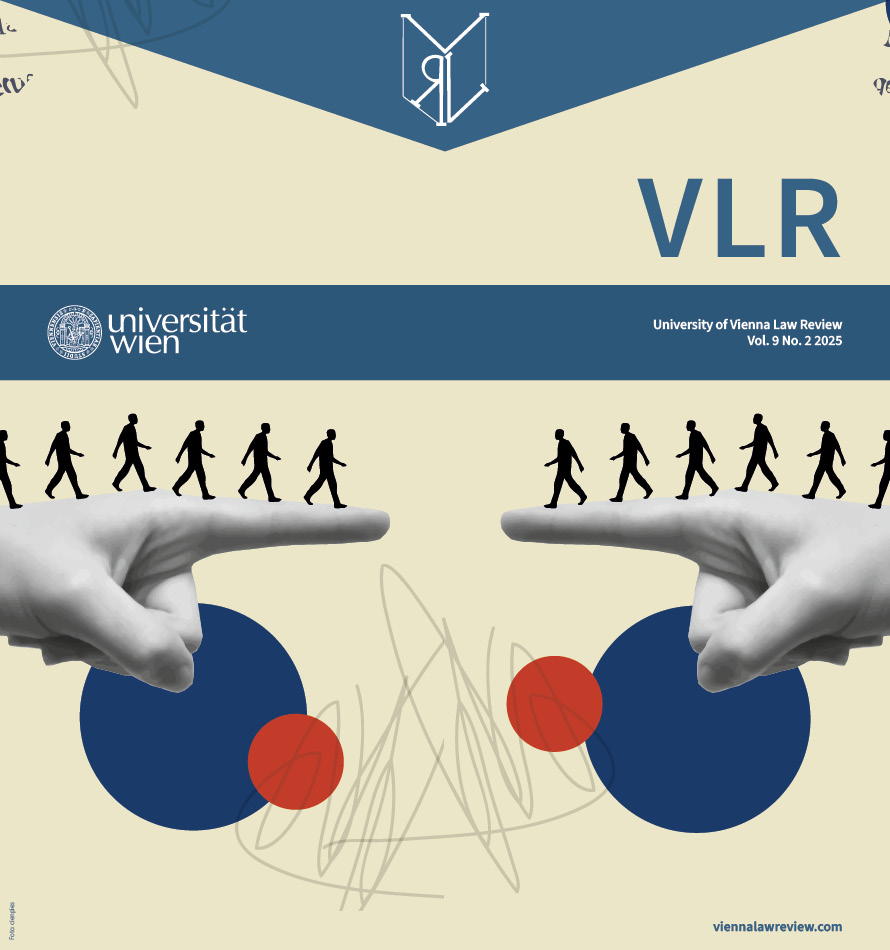Making Europe Fit for the Digital Age?
The EU’s Approach to Regulating Online Disinformation through the Lens of Article 10 ECHR
DOI:
https://doi.org/10.25365/vlr-2025-9-2-140Keywords:
Digital Services Act (DSA), Article 10 ECHR, freedom of expression, disinformationAbstract
In recent years, the European Union (EU) has reinforced its regulatory approach to online disinformation in response to the growing dissemination of false and misleading content via digital platforms. Departing from its earlier reliance on voluntary self-regulation by platform operators, the EU has now shifted to a co-regulatory model of governance. The principal legislative instrument in this regard is the Digital Services Act (DSA), adopted in 2022. The DSA imposes specific risk management obligations on very large online platforms, including obligations addressing risks associated with online disinformation. However, the DSA does not provide a precise definition of all categories of content it seeks to regulate, including disinformation. As a result, its scope may extend to (non-intentional) misinformation – marking a departure from earlier non-binding EU initiatives that were explicitly focusing on (intentional) disinformation. This broader scope may lead to certain forms of value judgments, which generally enjoy heightened protection under Article 10 of the European Convention on Human Rights (ECHR), to be subjected to content moderation under the risk mitigation obligations set out in Article 35 DSA. Such regulatory ambiguity gives rise to concerns regarding the permissible limits of restrictions on freedom of expression under Article 10 ECHR. Against the backdrop of the ECHR and the European Court of Human Rights’ extensive and well-established case law on freedom of expression, this paper offers a critical analysis of the EU’s regulatory framework on online disinformation. The focus is placed in particular on Articles 34 and 35 of the DSA. It argues that, while the DSA pursues legitimate objectives – such as protecting public health and the rights of others – its conceptual vagueness risks overreach, especially in the moderation of specific forms of misinformation, particularly those expressed as value judgments. The paper concludes that, although the DSA broadly aligns with human rights standards, greater definitional precision and alignment with ECtHR jurisprudence are necessary to ensure full compliance with the principles of freedom of expression under Article 10 ECHR. Further research is needed on the actual reach and harm of online disinformation and on how platforms apply the DSA’s mandates in practice, particularly regarding information-based value judgments.
Downloads
Published
Issue
Section
License
Copyright (c) 2025 Miriam Soldan

This work is licensed under a Creative Commons Attribution-NonCommercial-NoDerivatives 4.0 International License.
All articles are licensed under the Creative Commons License CC BY-NC-ND. A summary of the license terms can be found on the following page:
https://creativecommons.org/licenses/by-nc-nd/4.0/
Authors retain copyright without restrictions.


